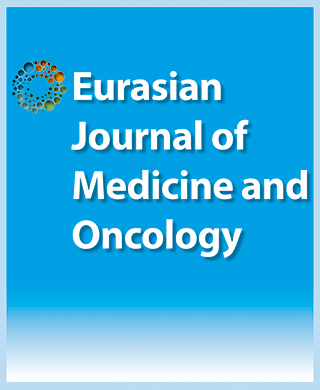

Unveiling the Prognostic Significance of Long Non-Coding RNA (lncRNA) PCAT1 in Invasive Breast Carcinoma
Brototi Chakrabarty1, Kashifa Afrin2, Sumaiya Islam3, Neloy Kundu2, Md Afjalus Siraj41Department of Pharmaceutical Sciences, College of Pharmacy, University of Oklahoma Health Sciences Center (OUHSC), Oklahoma City, OK, USA, 2Pharmacy Discipline, Life Science School, Khulna University, Khulna, Bangladesh, 3Department of Chemical Engineering, Auburn University, Auburn, Alabama, USA, 4Department of Pharmaceutical Sciences, Daniel K. Inouye College of Pharmacy, University of Hawaii at Hilo, Hilo, HI, USA,
Objective: Prostate cancer-associated transcript 1 (PCAT1) is a long non-coding RNA (lncRNA), composed of more than 200 nucleotides which expression controls the proliferation, migration, invasion, and metastasis of different cancers. In this current study, we have analyzed the possible role of PCAT1 as a prognostic biomarker for invasive breast cancer (IBC). Method: Online web genomic portal cBioportal, GEPIA, PhosphoSitePlus, IGV, GENEMENIA, Ensembl, and ENCORI were used for this analysis. Result: Our analysis demonstrated that PCAT1 expression was higher in BRCA-mutated BC patients cells compared to normal cells (fold change ~ 1.56). Over time, patients with greater PCAT1 expression had a significantly lower overall survival rate (p- 5.539e-5). Besides, there was significant alteration of PCAT1 in PR (p- 1.672e-6), HER2 (p- 3.920e-4) negative, and ER (p- 3.190e-6) positive primary IBC samples. In addition, a correlation was also found with the alteration of PCAT1 and the histologic grade of the IBC (p- >10-10). Moreover, the co-occurrence of PCAT1 with the oncogenes of CASC family, i.e., CASC8, CASC11, and CASC19 in IBC was identified. The PCAT1, CASC8, CASC11, and CASC19 have genomic location, named chr8q24, which contains the loci responsible for different cancers including BC. Conclusion: These findings indicate the possible association of PCAT1 expression with poor clinical outcomes and co-occurrence with previously established oncogenes as well as biomarkers suggests its usefulness as a prognostic biomarker in IBC. Keywords: Prostate cancer-associated transcript 1, long non-coding RNA, invasive breast carcinoma, estrogen recep tor, cancer susceptibility candidate
Cite This Article
Chakrabarty B, Afrin K, Islam S, Kundu N, Siraj M. Unveiling the Prognostic Significance of Long Non-Coding RNA (lncRNA) PCAT1 in Invasive Breast Carcinoma. EJMO. 2024; 8(2): 173-184
Corresponding Author: Md Afjalus Siraj



